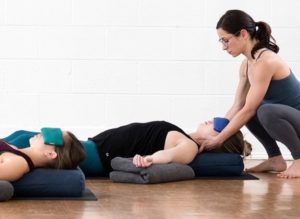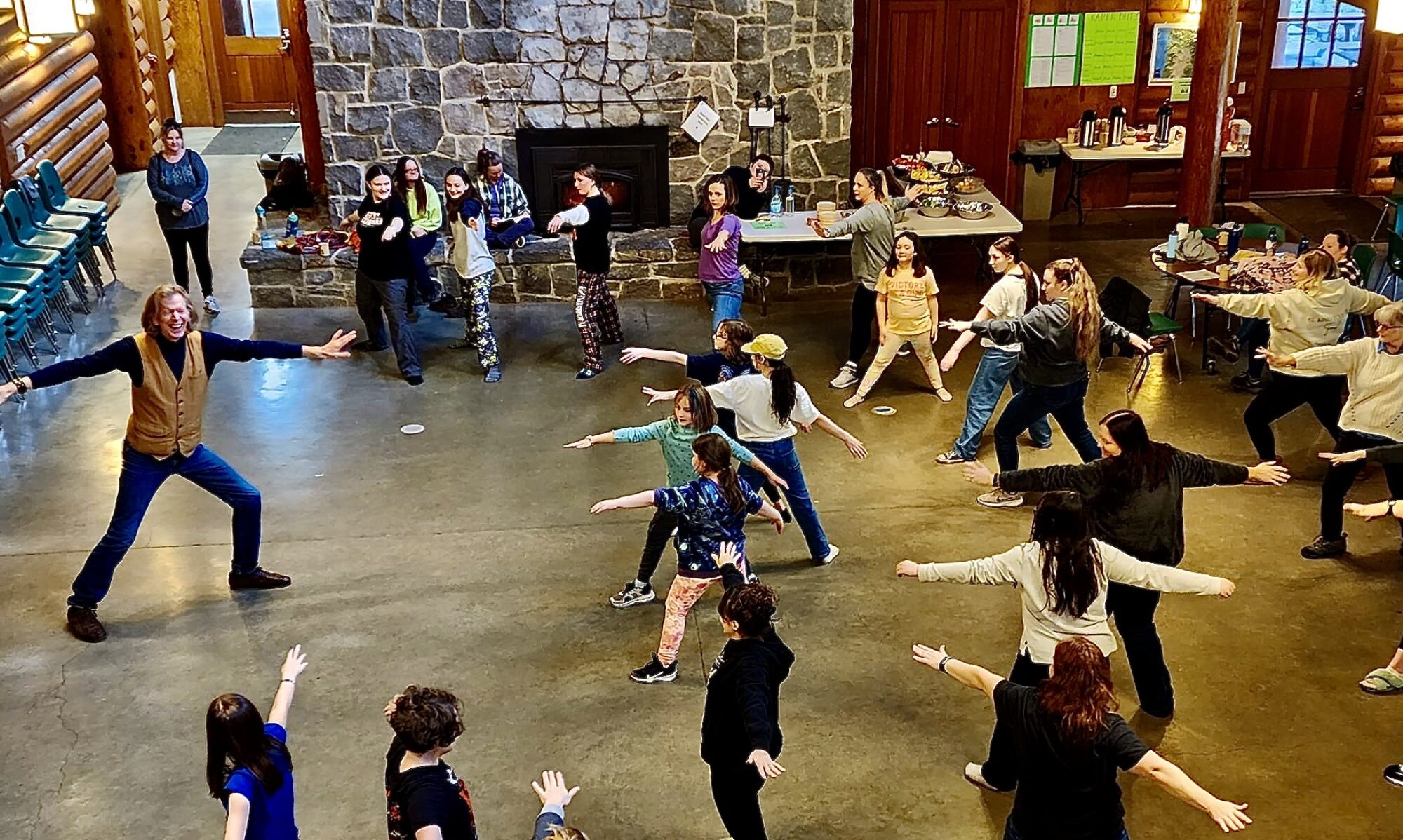THE CALENDAR OF WEEKLY CLASSES, CLINICS AND WORKSHOPS.
While still adhering to the principles of breath-centered yoga this class is a softer practice that includes slower movement combined with postures where the body is supported using props (blankets, blocks and bolsters). Practitioners are encouraged to hold the supported postures longer and find comfort in each pose. This is a wonderful opportunity to de-stress from a long day and restore body, mind and heart. Includes some guided meditation.
Gentle/Restorative Fee Schedule:
Drop in – any time during the terms weekly classes: $10 per class.
Class Passes (For the current 10 week term only):
One class/week (10 classes) – $80. Two classes/week (20 classes) – $140
Thanks! Mary To find out more and register I invite you to visit my website at http://innersanctuaryyoga.com or contact me at [email protected]
While still adhering to the principles of breath-centered yoga this class is a softer practice that includes slower movement combined with postures where the body is supported using props (blankets, blocks and bolsters). Practitioners are encouraged to hold the supported postures longer and find comfort in each pose. This is a wonderful opportunity to de-stress from a long day and restore body, mind and heart. Includes some guided meditation.
Gentle/Restorative Fee Schedule:
Drop in – any time during the terms weekly classes: $10 per class.
Class Passes (For the current 10 week term only):
One class/week (10 classes) – $80. Two classes/week (20 classes) – $140
Thanks! Mary To find out more and register I invite you to visit my website at http://innersanctuaryyoga.com or contact me at [email protected]
The three principles of Yin yoga are: 1) Come into an appropriate depth for your body in each pose; 2) Become still; 3) Hold for a long time. This can mean up to 3-5 minutes per pose. What is important is not what a pose looks like, but what it feels like… we use many props in Yin yoga to support our bodies in releasing into the connective tissues rather than specifically stretching the muscles. Yin yoga is not restorative yoga, in that we are still looking for some stress to the tissues in order to create optimal health. Yin targets mainly the connective tissues of the hips, pelvis and lower spine.A slower moving class focusing on floor postures. All levels welcome.“We don’t use our bodies to get into the pose, we use the pose to get into the body”, according to my teacher, Bernie Clark.
The three principles of Yin yoga are: 1) Come into an appropriate depth for your body in each pose; 2) Become still; 3) Hold for a long time. This can mean up to 3-5 minutes per pose. What is important is not what a pose looks like, but what it feels like… we use many props in Yin yoga to support our bodies in releasing into the connective tissues rather than specifically stretching the muscles. Yin yoga is not restorative yoga, in that we are still looking for some stress to the tissues in order to create optimal health. Yin targets mainly the connective tissues of the hips, pelvis and lower spine.A slower moving class focusing on floor postures. All levels welcome.“We don’t use our bodies to get into the pose, we use the pose to get into the body”, according to my teacher, Bernie Clark.
The three principles of Yin yoga are: 1) Come into an appropriate depth for your body in each pose; 2) Become still; 3) Hold for a long time. This can mean up to 3-5 minutes per pose. What is important is not what a pose looks like, but what it feels like… we use many props in Yin yoga to support our bodies in releasing into the connective tissues rather than specifically stretching the muscles. Yin yoga is not restorative yoga, in that we are still looking for some stress to the tissues in order to create optimal health. Yin targets mainly the connective tissues of the hips, pelvis and lower spine.A slower moving class focusing on floor postures. All levels welcome.“We don’t use our bodies to get into the pose, we use the pose to get into the body”, according to my teacher, Bernie Clark.

Make time to practice self-compassion and self-care. Join us for a restorative yoga practice lead by Carole Cotten-Figueiredo LMT and Teresa Hasenour MS, OTR/L where they provide healing touch massage, CranioSacral Therapy and Reiki techniques.
Saturday, April 27th; 7-8:30pm. $35. RSVP with Carole at (971) 246-1405. Limited to 10 participants. Contact Carol for a wait-list and for the winter Restorative Yoga & Massage dates.
The three principles of Yin yoga are: 1) Come into an appropriate depth for your body in each pose; 2) Become still; 3) Hold for a long time. This can mean up to 3-5 minutes per pose. What is important is not what a pose looks like, but what it feels like… we use many props in Yin yoga to support our bodies in releasing into the connective tissues rather than specifically stretching the muscles. Yin yoga is not restorative yoga, in that we are still looking for some stress to the tissues in order to create optimal health. Yin targets mainly the connective tissues of the hips, pelvis and lower spine.A slower moving class focusing on floor postures. All levels welcome.“We don’t use our bodies to get into the pose, we use the pose to get into the body”, according to my teacher, Bernie Clark.
The three principles of Yin yoga are: 1) Come into an appropriate depth for your body in each pose; 2) Become still; 3) Hold for a long time. This can mean up to 3-5 minutes per pose. What is important is not what a pose looks like, but what it feels like… we use many props in Yin yoga to support our bodies in releasing into the connective tissues rather than specifically stretching the muscles. Yin yoga is not restorative yoga, in that we are still looking for some stress to the tissues in order to create optimal health. Yin targets mainly the connective tissues of the hips, pelvis and lower spine.A slower moving class focusing on floor postures. All levels welcome.“We don’t use our bodies to get into the pose, we use the pose to get into the body”, according to my teacher, Bernie Clark.
The three principles of Yin yoga are: 1) Come into an appropriate depth for your body in each pose; 2) Become still; 3) Hold for a long time. This can mean up to 3-5 minutes per pose. What is important is not what a pose looks like, but what it feels like… we use many props in Yin yoga to support our bodies in releasing into the connective tissues rather than specifically stretching the muscles. Yin yoga is not restorative yoga, in that we are still looking for some stress to the tissues in order to create optimal health. Yin targets mainly the connective tissues of the hips, pelvis and lower spine.A slower moving class focusing on floor postures. All levels welcome.“We don’t use our bodies to get into the pose, we use the pose to get into the body”, according to my teacher, Bernie Clark.
